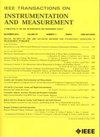Compressive-Sensing Reconstruction for Satellite Monitor Data Using a Deep Generative Model
IF 5.9
2区 工程技术
Q1 ENGINEERING, ELECTRICAL & ELECTRONIC
IEEE Transactions on Instrumentation and Measurement
Pub Date : 2024-10-29
DOI:10.1109/TIM.2024.3485429
引用次数: 0
Abstract
The mechanical and electrical performance degradation of satellite components has a serious impact on imaging. How to perform high-precision reconstruction of the monitor data from compressive-sensing (CS) data (limited by online computing, storage and transmission) is often the first stage in the fault diagnosis of in-orbit satellites. In this article, a deep generative model named denoising diffusion probabilistic model (DDPM) is applied for the equipment monitor data reconstruction. The priors-assisted reconstruction method is useful for reducing reconstruction error and decreasing measurement/monitor cost. The reconstruction method mainly consists of unconditional generation transition from pre-trained DDPM noise matching network and conditional likelihood correction step toward downsampling data. An inverse time decay technique is embedded into step size strategy of gradient computation to ensure data consistency. As an unsupervised learning paradigm, the learned deep generative priors can be utilized for measurements with different compressive sampling ratio (CSR) like plug-and-play prior. Numerical experiments executed on control moment gyro (CMG) data and reciprocating refrigeration compressor (RRC) data validate the effectiveness of the new method, in comparison with conventional sparse prior methods and advanced deep learning reconstruction methods. Finally, we conduct out-of-distribution (OOD) generalization experiments on fault working condition, which demonstrates the DDPM priors-assisted data reconstruction method are suitable for different operating conditions.利用深度生成模型对卫星监测数据进行压缩传感重构
卫星部件的机械和电气性能退化对成像有严重影响。如何从压缩传感(CS)数据(受限于在线计算、存储和传输)中对监测器数据进行高精度重构,往往是在轨卫星故障诊断的第一阶段。本文将一种名为去噪扩散概率模型(DDPM)的深度生成模型用于设备监控数据的重建。先验辅助重构方法有助于减少重构误差和降低测量/监测成本。重建方法主要包括从预训练的 DDPM 噪声匹配网络的无条件生成过渡和向下采样数据的条件似然校正步骤。梯度计算的步长策略中嵌入了反时间衰减技术,以确保数据的一致性。作为一种无监督学习范例,学习到的深度生成先验可用于不同压缩采样率(CSR)的测量,就像即插即用先验一样。在控制力矩陀螺仪(CMG)数据和往复式制冷压缩机(RRC)数据上进行的数值实验验证了新方法的有效性,并与传统的稀疏先验方法和先进的深度学习重构方法进行了比较。最后,我们对故障工况进行了分布外(OOD)泛化实验,证明了 DDPM 先验辅助数据重建方法适用于不同的运行工况。
本文章由计算机程序翻译,如有差异,请以英文原文为准。
求助全文
约1分钟内获得全文
求助全文
来源期刊

IEEE Transactions on Instrumentation and Measurement
工程技术-工程:电子与电气
CiteScore
9.00
自引率
23.20%
发文量
1294
审稿时长
3.9 months
期刊介绍:
Papers are sought that address innovative solutions to the development and use of electrical and electronic instruments and equipment to measure, monitor and/or record physical phenomena for the purpose of advancing measurement science, methods, functionality and applications. The scope of these papers may encompass: (1) theory, methodology, and practice of measurement; (2) design, development and evaluation of instrumentation and measurement systems and components used in generating, acquiring, conditioning and processing signals; (3) analysis, representation, display, and preservation of the information obtained from a set of measurements; and (4) scientific and technical support to establishment and maintenance of technical standards in the field of Instrumentation and Measurement.
 求助内容:
求助内容: 应助结果提醒方式:
应助结果提醒方式:


